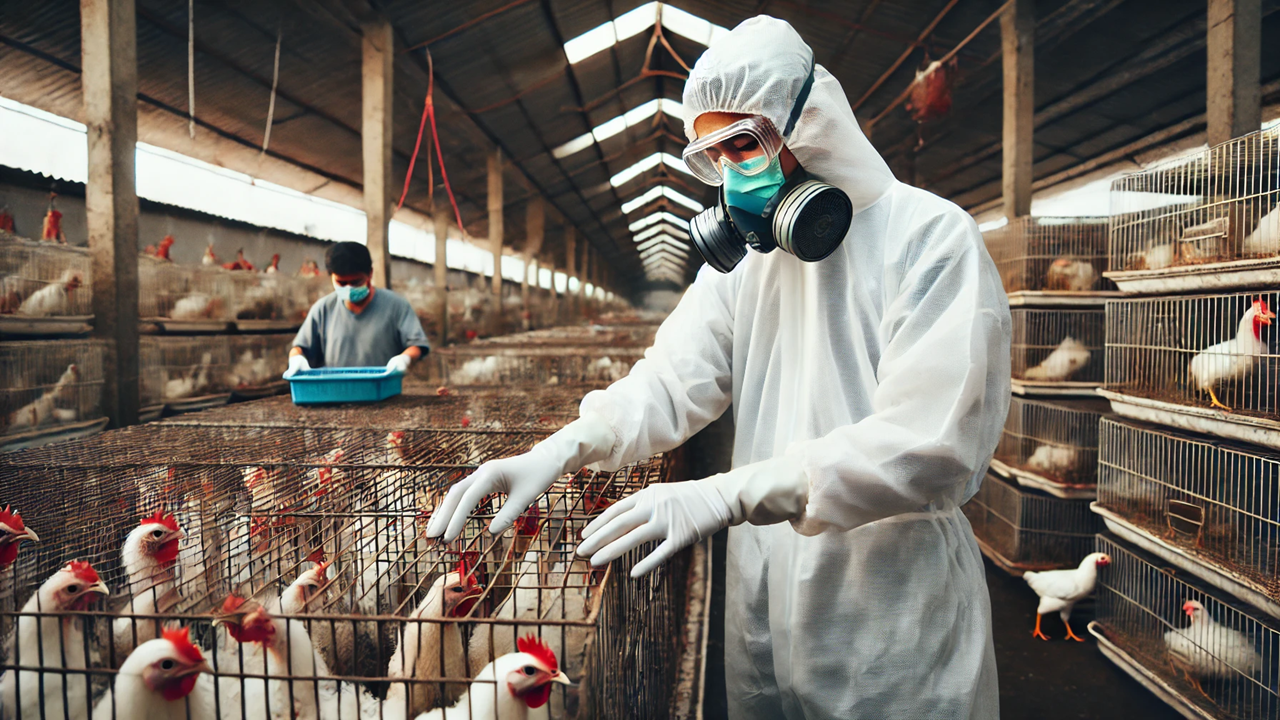Otago Egg Farm Clears Avian Flu as MPI Lifts Biosecurity Controls
Tracing investigations confirmed that no HPAI-infected birds were detected outside Hillgrove, a major relief for the industry and consumers alike.

- Country:
- New Zealand
In a significant win for New Zealand’s biosecurity efforts, the Ministry for Primary Industries (MPI) has declared the successful eradication of high pathogenic avian influenza (HPAI) from a major commercial egg farm in Otago. Strict biosecurity controls at Mainland Poultry’s Hillgrove property have now been lifted, allowing the farm to begin repopulating its flocks after months of stringent disease management.
The outbreak, confirmed in December last year, involved the H7N6 strain of avian influenza — a less virulent subtype compared to the notorious H5N1 strain devastating bird populations globally. Biosecurity Minister Andrew Hoggard praised the rapid, collaborative response that led to this success, highlighting the essential role played by both government agencies and the poultry industry.
A Model of Rapid Response and Industry Partnership
Minister Hoggard emphasized the swift action taken by the farm's management and MPI officials. “Rapid action on behalf of the farmer and MPI to stand up a response and restrict movements paid off,” he stated. Immediate containment efforts, including stringent movement restrictions and intensive farm monitoring, prevented the virus from spreading beyond the original outbreak site.
Tracing investigations confirmed that no HPAI-infected birds were detected outside Hillgrove, a major relief for the industry and consumers alike. According to Mr. Hoggard, the effective cooperation with the wider poultry sector was key to containing and stamping out the disease swiftly.
“It has been important work because New Zealand’s robust biosecurity system and the relative freedom from pests and diseases that it protects play a massive part in our farmers' competitive advantage,” he noted.
Preparedness for More Virulent Threats
The Minister also acknowledged that the measures taken to prepare for a possible arrival of HPAI H5N1 — the highly infectious and deadly strain currently wreaking havoc abroad — positioned New Zealand to manage the less severe H7N6 outbreak effectively.
“This was the first detection of HPAI in New Zealand and it tested some of the plans that are being developed for the arrival of HPAI H5N1," Hoggard said. "It certainly provides a timely reminder that all New Zealanders have a role to play in being prepared through strong biosecurity as an essential first line of defence."
New Zealand's geographic isolation has, so far, spared it from the ravages of H5N1, but authorities warn against complacency. The Hillgrove incident has served as a critical real-world exercise, validating biosecurity protocols and reinforcing the country's readiness to respond swiftly to any future incursions.
Future Vigilance and National Cooperation
The MPI has reiterated the need for ongoing vigilance and cooperation among farmers, industry stakeholders, and the public. Maintaining tight biosecurity standards, early reporting of suspicious animal health issues, and continued investment in response capability will be pivotal in safeguarding New Zealand’s poultry industry.
The Hillgrove farm, now cleared of infection, will undergo controlled repopulation with careful monitoring to ensure the continued absence of the virus. Lessons learned from this outbreak are expected to feed into national contingency planning, further strengthening New Zealand’s ability to defend against exotic diseases.
As Andrew Hoggard concluded, “Our success here should encourage us, but it must also reinforce the importance of maintaining constant vigilance. Biosecurity is everyone’s responsibility.”










